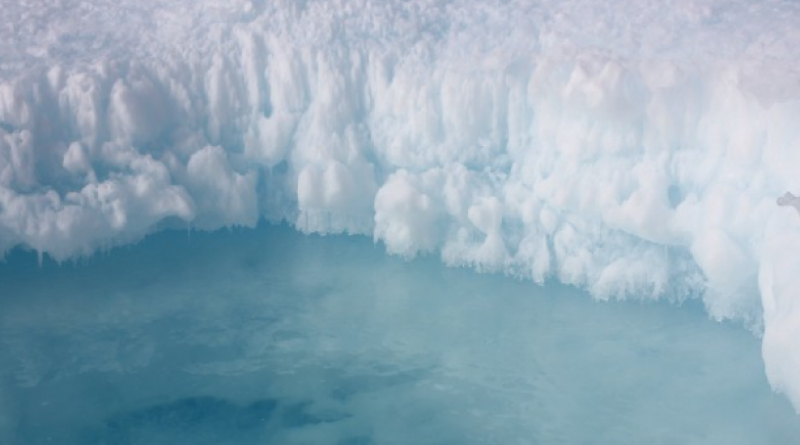The Toughest Problem in the IPCC Report is Surprising

What do we do when human lifespans, psychology, and natural cycles don’t match up?
You may have avoided digging very deeply into the 2021 report from the Intergovernmental Panel on Climate Change; after all, it contained a number of unsurprising but depressing findings. The UN panel found with more certainty than ever that human activities have been the main driver of climate change, that the earth is already about one degree warmer than the pre-industrial baseline, and that extreme weather events due to climate change are increasing in number and severity.
All of this is daunting, but here’s the scariest finding in their report: the IPCC essentially declared that another half-degree of warming is essentially baked into our climate system. The panel thinks that, even in their most optimistic scenario for emission reduction, the earth will be about 1.5 degrees above baseline temperatures by the 2040s. Nothing we do between now and then can alter that in any significant way.
This means that the actions we take now won’t really prevent further warming before 2050; they’ll only serve to prevent things getting even worse 30 years from now and beyond.
What’s so scary about this? It’s not the extra half-degree of warming, although that will bring with it more droughts, hurricanes, extinctions, and heat waves. It’s the effect that this timeline will have on our ability to act on climate.
The average voter in America is now over the age of 50. Let’s imagine this average voter’s thought process. Not to be too morbid, but Mr. or Ms. Average Voter will be, if not dead, nearing the end by 2050. They will live in a world that gets consistently warmer over the next 30 years, sure, but their political and personal actions are unlikely to change the climate much while they are alive — remember, the 1.5 degree rise by 2050 is basically locked in. Our political class is even older. Remember, both parties’ major leaders are septuagenarians — of Mitch McConnell, Nancy Pelosi, Joe Biden, and Donald Trump, the youngest is Trump at the spry age of 75. They’ll all be long gone by the time our climate policies have any effect.
American voters are not known for their selflessness, nor are they renowned for their ability to plan far into the future. It’s not just Americans — human brains are terrible at imagining the future, and we don’t value future possibilities nearly as highly as we value short-term gains.
What’s to keep our aging cohort of voters (and the politicians who work for them) focused on climate issues, when we won’t reap the benefits of climate policy until after the average voter is dead and the politicians have long since retired? Even among voters on the left who are generally sympathetic toward action on climate, there will always be the temptation to prioritize policies that provide a more immediate effect. When climate is up against issues like health care, income inequality, education, and national security — and Congress gets almost nothing done in the best of times — it’s going to be very tough to get voters and politicians to focus on climate action, which won’t pay off for decades. This is what happened in the Obama administration, and it seems like it may happen under Biden, as well.
So what do we do? Of course, we need to persuade older generations to make changes now from which they are unlikely to personally benefit. This is a worthwhile effort, but I’m skeptical that a “think of the children” approach will work on its own. As the COVID pandemic clearly illustrates, we have trouble as a nation doing much for the health and safety of others. Studies have found that having children has no discernible effect on people’s environmental behavior. Furthermore, cultural changes like this won’t happen on the time scale that we need for effective climate action.
So if it will be tough to persuade middle-aged and older people to do what’s necessary, then we need to make them less important in our political system. Young people need to vote in larger numbers than those who won’t suffer as much from climate inaction. Sadly, the young don’t vote in great numbers. The 57% of people aged 18–34 who voted in 2020 were outnumbered by the 69% of 35–64-year-olds and the 74% of 65+ Americans who participated in the election.
How can we get younger people to the polls? We could lower the voting age; there’s a strong argument to be made that 16-year-olds should be allowed to cast a ballot. We can make sure that young people know how to register to vote — in 2020, as many as one-third said they didn’t know how — or make registration easier. We also need to make voting itself easier, because young people often can’t transport themselves to the polls as easily as their elders.
We also need to empower younger people to take the reins in our political system. Twenty-three members of the Senate are at least 70; the average age of a senator is 64. Young people not only need to vote, but they need younger people to vote for. It’s not surprising that the aging Senate is the place that climate legislation goes to die time after time.
Climate change has always been a problem that exploits the flaws in human psychology and political systems. The new predictions from the IPCC make our problem even thornier. If we’re going to tackle climate change in any meaningful ways, we’re going to have to find new ways to operate before it’s too late.
24 September 2021
medium




